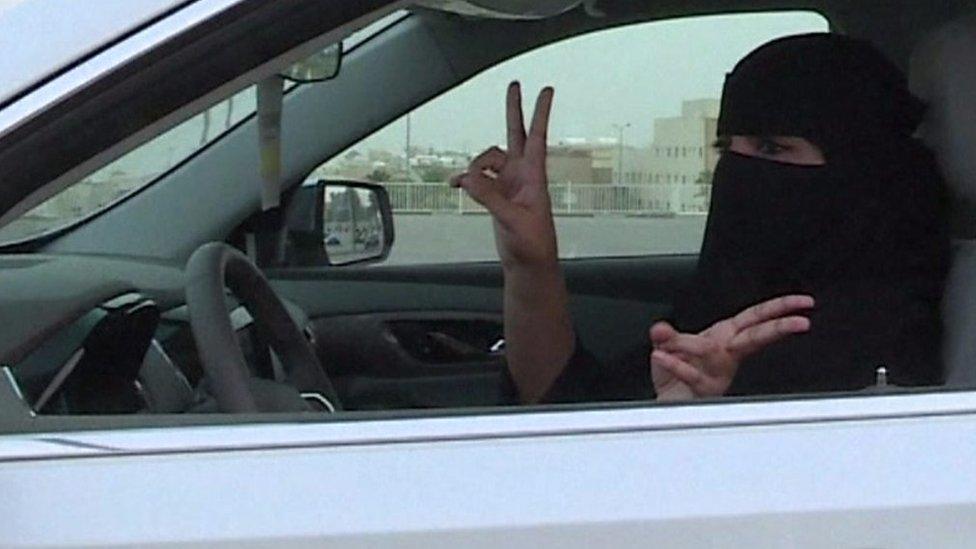Saudi Arabia women's driving activists 'targeted in smear campaign'
- Published
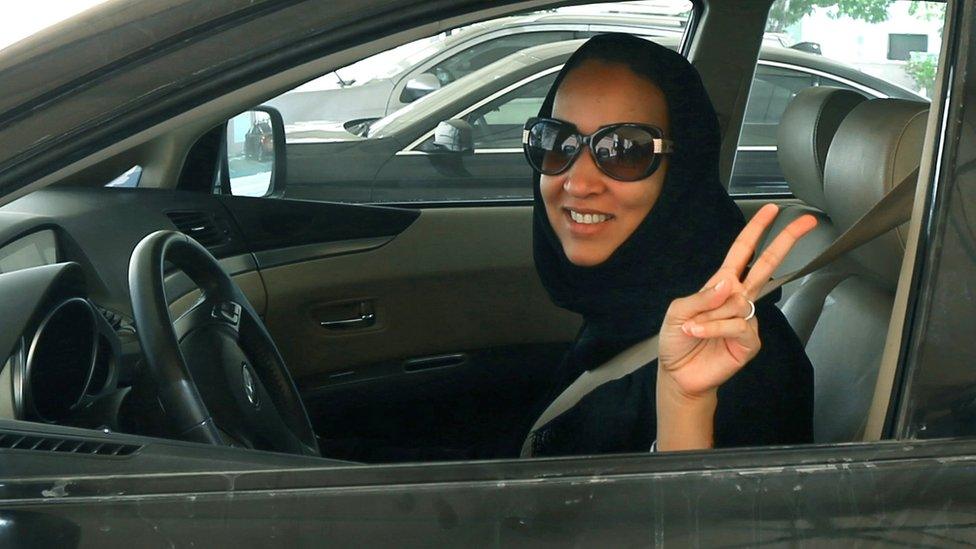
Saudi activist Manal al-Sharif - living in Sydney - said there was an "organised defamation campaign"
The woman behind the movement to allow women to drive in Saudi Arabia says she and her fellow activists in the kingdom are being targeted in a smear campaign.
Saudi native Manal al-Sharif said she has been receiving death threats online ahead of the ban's removal.
She was speaking after several activists in the kingdom were arrested.
They have been accused of being "traitors" and working with foreign powers - charges Amnesty International called "blatant intimidation tactics".
The group is accused of "contact with foreign entities with the aim of undermining the country's stability and social fabric", the human rights group said.
Manal al-Sharif, who is currently living in Australia, said the "organised defamation campaign" targeting the activists was similar to the campaign that targeted the movement in 2011.
Allow X content?
This article contains content provided by X. We ask for your permission before anything is loaded, as they may be using cookies and other technologies. You may want to read X’s cookie policy, external and privacy policy, external before accepting. To view this content choose ‘accept and continue’.
The ban is due to be lifted on 24 June.
'Crackdown on dissent'
Seven people - men and women - were arrested earlier this week. They are believed to include Loujain al-Hathloul, a well-known figure in the campaign for women's driving rights.
Ms Hathloul has been detained previously, including once in 2014 when she attempted to drive across the border from the United Arab Emirates. She served 73 days at a juvenile detention centre as a result, and documented many of her experiences on Twitter.
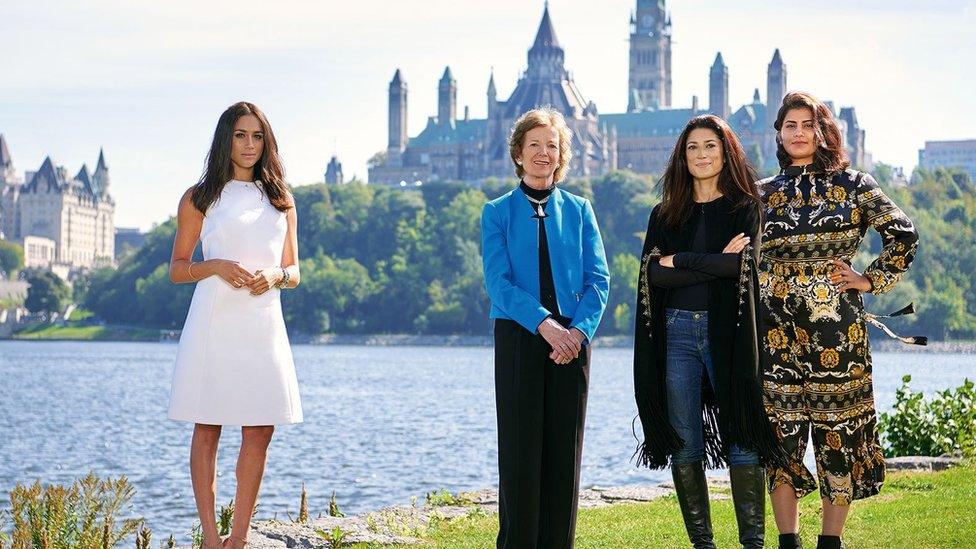
Loujain al-Hathloul (far right) attended the One Young World Summit along with Prince Harry's now-wife Meghan Markle, Pakistani author Fatima Bhutto and former Irish President Mary Robinson (C) in 2016
Amnesty said it believes that women's rights activists Eman al-Nafjan, Aziz al-Yousef, Dr Aisha al-Manea, Dr Ibrahim al-Modeimigh, and Mohammad al-Rabea have also been arrested.
Saudi Arabia's laws require women to seek male permission for various decisions and actions, and that extends to the ban on women driving.
Previously, that meant that families had to hire private drivers to transport female relatives.
Influential Crown Prince Mohammad Bin Salman has widely been credited with a range of social reforms in the traditionally conservative kingdom.
He was, however, singled out for criticism in a statement from Amnesty.
"Crown Prince Mohammad Bin Salman has presented himself as a 'reformer', but such promises fall flat amid the intensifying crackdown on dissenting voices in the kingdom," it said.
"His pledges amount to very little if those who fought for the right to drive are now all behind bars for peacefully campaigning for freedom of movement and equality."
- Published6 June 2017
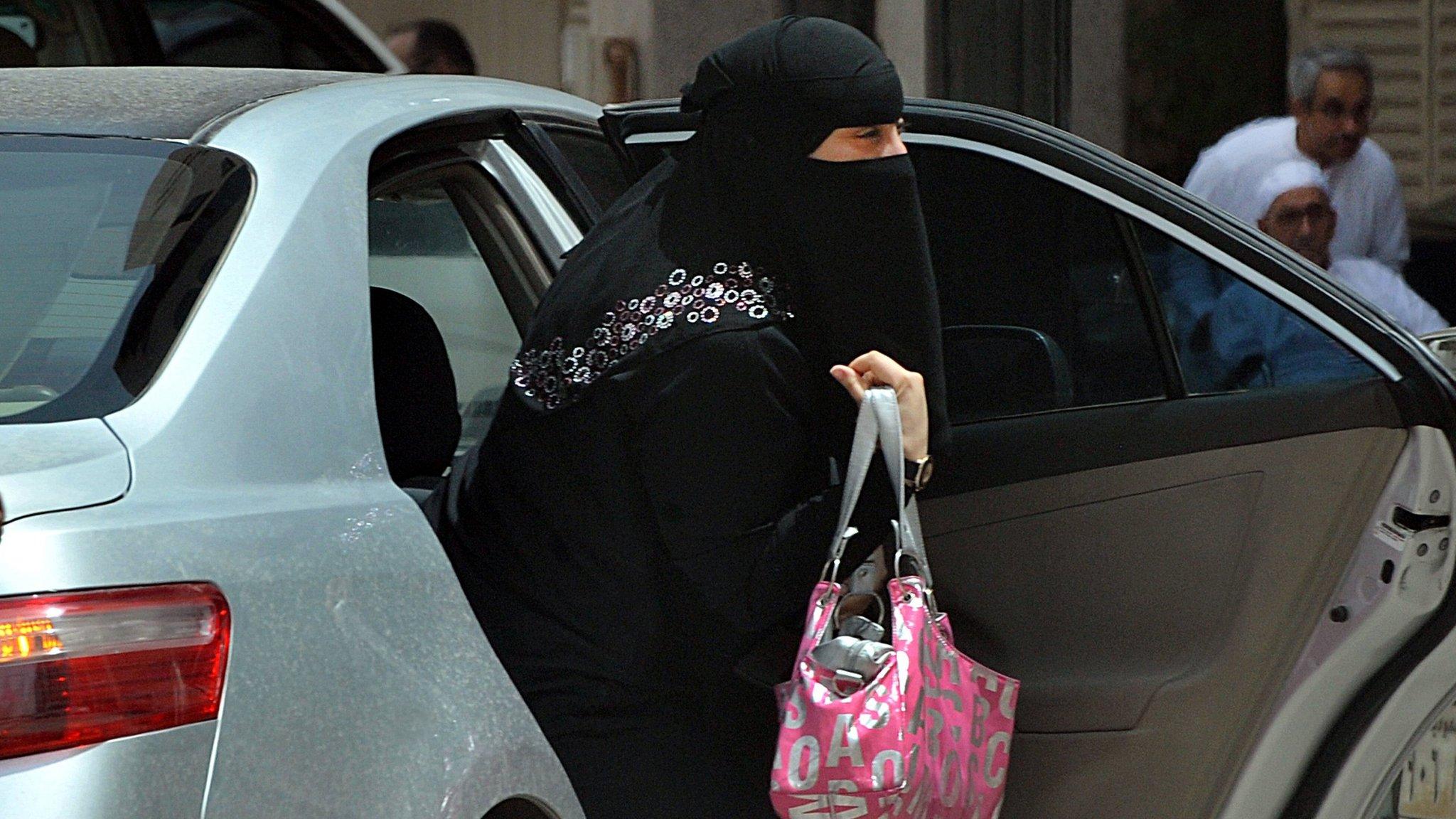
- Published16 May 2018
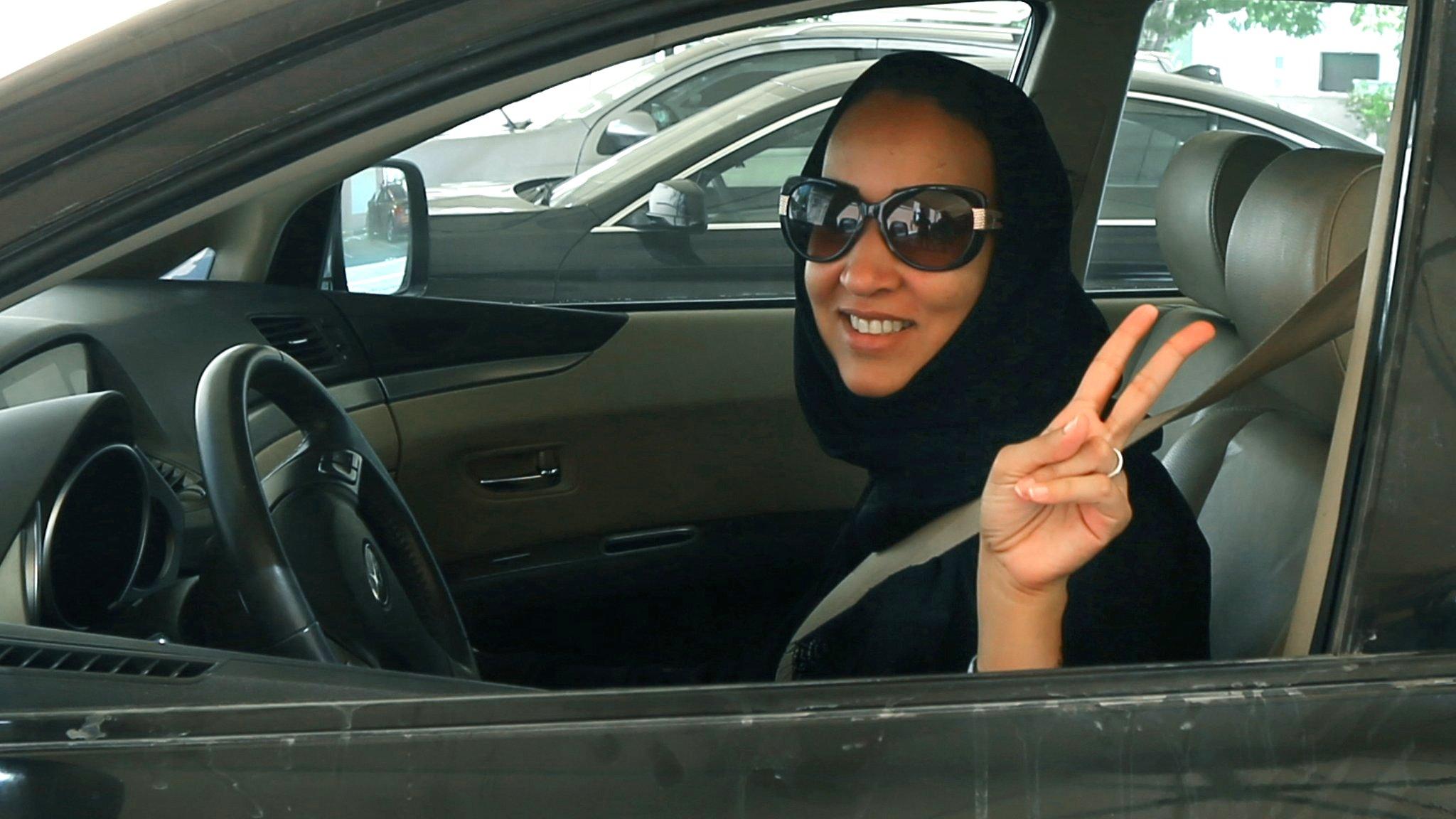
- Published15 May 2018
